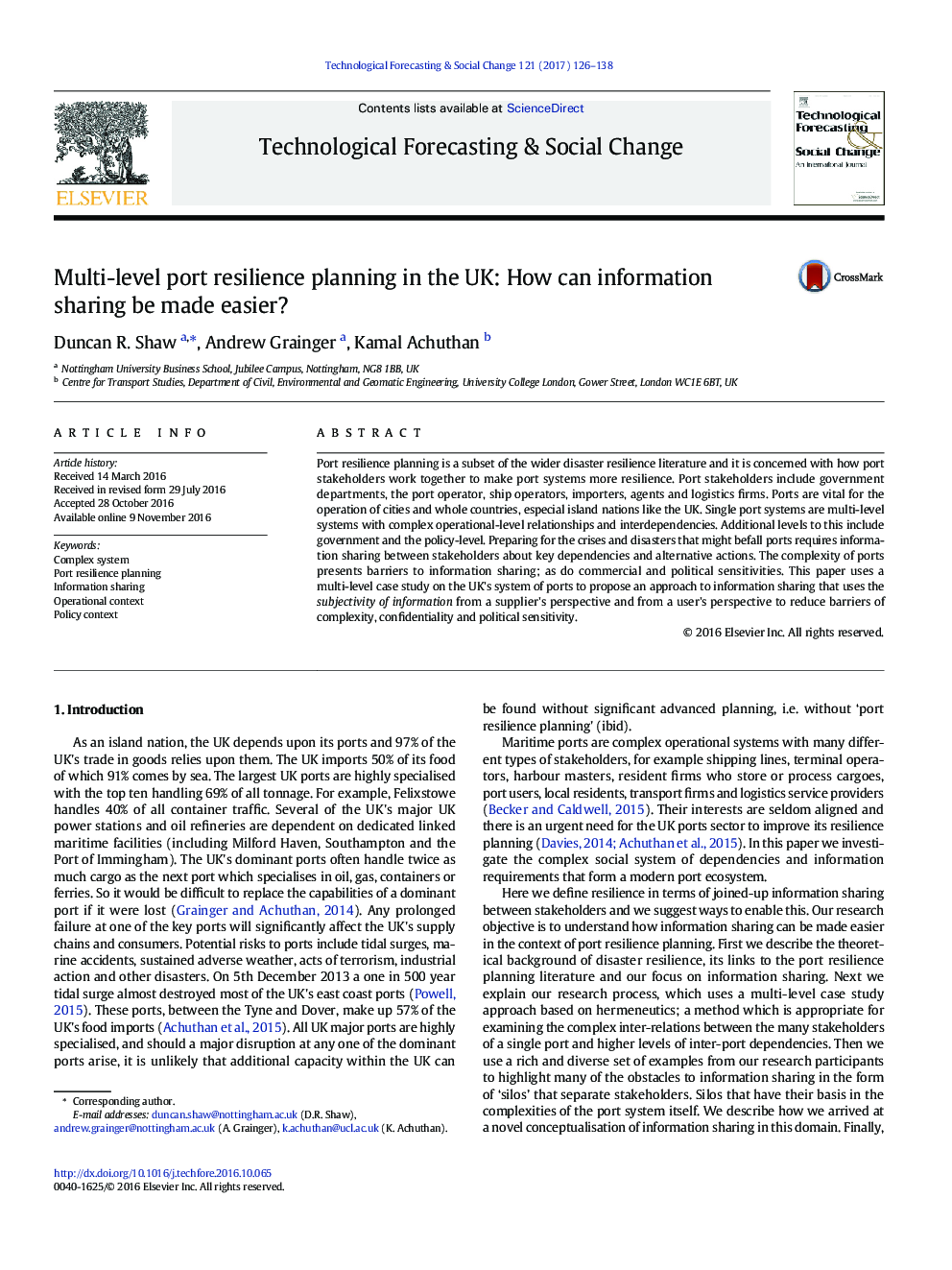| Article ID | Journal | Published Year | Pages | File Type |
|---|---|---|---|---|
| 5036873 | Technological Forecasting and Social Change | 2017 | 13 Pages |
â¢Ports are vital for the operation of cities and whole countries.â¢Ports are multi-level systems with complex relationships and interdependencies.â¢Preparing for the crises requires information sharing between stakeholders.â¢Barriers include complexity, confidentiality and political sensitivity.â¢The subjectivity of information can be used to reduce information sharing barriers.
Port resilience planning is a subset of the wider disaster resilience literature and it is concerned with how port stakeholders work together to make port systems more resilience. Port stakeholders include government departments, the port operator, ship operators, importers, agents and logistics firms. Ports are vital for the operation of cities and whole countries, especial island nations like the UK. Single port systems are multi-level systems with complex operational-level relationships and interdependencies. Additional levels to this include government and the policy-level. Preparing for the crises and disasters that might befall ports requires information sharing between stakeholders about key dependencies and alternative actions. The complexity of ports presents barriers to information sharing; as do commercial and political sensitivities. This paper uses a multi-level case study on the UK's system of ports to propose an approach to information sharing that uses the subjectivity of information from a supplier's perspective and from a user's perspective to reduce barriers of complexity, confidentiality and political sensitivity.
